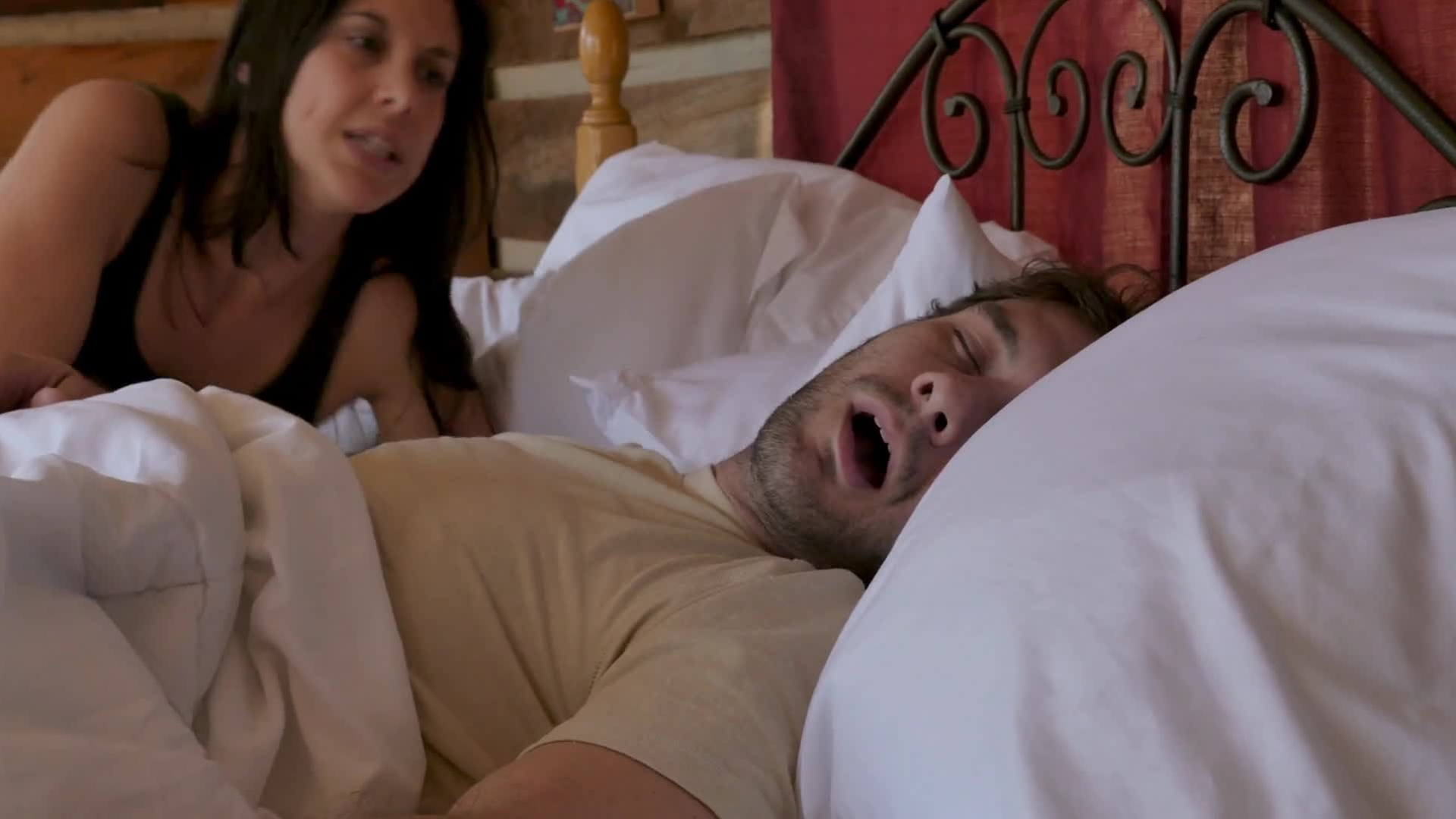
In today’s fast-paced and demanding world, anxiety and stress have become common challenges for many people. The overwhelming pressures of work, relationships, and daily responsibilities can take a toll on our mental and emotional well-being. However, by adopting effective strategies for managing anxiety and stress, we can regain control and lead a more balanced and fulfilling life. In this blog post, we will explore five proven techniques that can help you alleviate anxiety and stress, allowing you to experience greater calmness and serenity.
Table of Contents
- Understanding Anxiety and Stress
- Strategy 1: Deep Breathing and Relaxation Techniques
- Strategy 2: Mindfulness and Meditation Practices
- Strategy 3: Physical Exercise and Outdoor Activities
- Strategy 4: Healthy Lifestyle Habits and Self-Care
- Strategy 5: Seeking Support and Professional Help
- Conclusion
- Special Note To Reader
- FAQ
- Articles of Interest
Understanding Anxiety and Stress
Anxiety and stress are common experiences that affect individuals in various aspects of their lives. By gaining a deeper understanding of these phenomena, we can better equip ourselves to effectively manage and mitigate their impact. Let’s explore the nature of anxiety and stress in more detail.
Anxiety can manifest in different ways, ranging from mild uneasiness to overwhelming fear or worry. It often arises in response to specific triggers or situations, such as public speaking, exams, or social interactions. Some individuals may experience generalized anxiety, where they feel anxious without a specific cause. Physical symptoms associated with anxiety may include a rapid heartbeat, restlessness, irritability, muscle tension, sweating, and difficulty concentrating.
Stress, on the other hand, is the body’s response to demands or pressure, whether they are real or perceived. It can arise from various sources, such as work responsibilities, financial challenges, relationship issues, or major life changes. Stress triggers the release of stress hormones like cortisol, which prepares the body for a fight-or-flight response. While acute stress can be beneficial in certain situations, chronic or excessive stress can have detrimental effects on both physical and mental health.
Prolonged exposure to stress can lead to a range of health issues, including cardiovascular problems, weakened immune function, sleep disturbances, and an increased risk of mental health disorders. Chronic stress can also exacerbate anxiety symptoms, contributing to the development of anxiety disorders such as generalized anxiety disorder (GAD), panic disorder, or social anxiety disorder.
Recognizing the difference between normal stress and anxiety disorders is essential. While occasional stress is a part of life, anxiety disorders involve persistent and excessive worry or fear that significantly impairs daily functioning and quality of life. It is crucial to seek professional help if anxiety symptoms persist or interfere with your ability to carry out regular activities.
By understanding the nature of anxiety and stress, we can gain insight into the underlying mechanisms and develop effective strategies to manage and alleviate their impact on our well-being. The strategies we will discuss in this blog post aim to address both the physical and psychological aspects of anxiety and stress, promoting a holistic approach to well-being.
Now that we have a solid foundation of understanding, let’s explore five effective strategies that can help manage anxiety and stress, enabling you to navigate through life with greater ease and tranquility.
Strategy 1: Deep Breathing and Relaxation Techniques
Deep breathing and relaxation techniques form a foundational strategy for managing anxiety and stress. Through the simple act of consciously slowing down and focusing on your breath, you can activate the body’s relaxation response and experience a profound sense of calm. Let’s explore this strategy in more detail.
Deep breathing involves taking slow, deep breaths, engaging the diaphragm and expanding the belly with each inhalation. This type of breathing stimulates the parasympathetic nervous system, which is responsible for the body’s rest-and-digest response, promoting relaxation and reducing the effects of the stress response.
To practice deep breathing, find a quiet and comfortable space where you can sit or lie down. Close your eyes and begin by taking a slow, deep breath in through your nose, allowing your abdomen to rise as you fill your lungs with air. Exhale slowly through your mouth, releasing tension and letting go of any stress or anxiety you may be carrying. Continue this deep breathing pattern for several minutes, focusing on the sensation of your breath entering and leaving your body.
To enhance the effects of deep breathing, you can incorporate relaxation exercises such as progressive muscle relaxation or guided imagery. Progressive muscle relaxation involves systematically tensing and releasing different muscle groups to promote a deep state of relaxation. Start by tensing a specific muscle group, such as your shoulders, for a few seconds, then release the tension while focusing on the sensation of relaxation in that area. Move through each muscle group in your body, from your head down to your toes, gradually releasing tension and promoting overall relaxation.
Guided imagery is another technique that can complement deep breathing. It involves visualizing calming and peaceful scenes or scenarios in your mind. Close your eyes and imagine yourself in a serene natural setting, such as a beach, forest, or meadow. Engage your senses by visualizing the colors, hearing the sounds, and feeling the textures of the environment. Allow yourself to fully immerse in this mental imagery, experiencing a sense of tranquility and serenity.
By incorporating deep breathing and relaxation techniques into your daily routine, you can proactively manage anxiety and stress. These techniques can be practiced anywhere and at any time, making them accessible tools for finding moments of calm in the midst of a hectic day.
Remember that consistency and regular practice are key to reaping the benefits of deep breathing and relaxation exercises. Set aside dedicated time each day to engage in these practices, even if it’s just for a few minutes. Over time, you will develop a greater sense of awareness, allowing you to tap into the relaxation response more effortlessly and effectively during moments of anxiety or stress.
In the next section, we will explore another powerful strategy for managing anxiety and stress: mindfulness and meditation practices.
Strategy 2: Mindfulness and Meditation Practices
Mindfulness and meditation are transformative practices that offer profound benefits for managing anxiety and stress. By cultivating a state of present-moment awareness and non-judgmental observation of thoughts and sensations, these practices empower individuals to find inner peace and mental clarity. Let’s explore this strategy in more depth.
Mindfulness is the practice of paying deliberate attention to the present moment without judgment. It involves observing one’s thoughts, emotions, and bodily sensations with curiosity and acceptance. By bringing awareness to the present moment, you can break free from the cycle of anxious or stressful thoughts that may be consuming your mind.
Meditation, on the other hand, is a formal practice that cultivates mindfulness and deepens your connection to the present moment. There are various meditation techniques to explore, each with its unique focus and benefits. Here are a few examples:
Guided Meditation:
This form of meditation involves following a recorded or live guide who provides instructions, imagery, and prompts to help you relax and focus your attention. Guided meditations often emphasize deep relaxation, stress reduction, or cultivating positive emotions.
Breath Awareness:
Breath awareness meditation involves focusing your attention on the breath, observing the inhalation and exhalation without trying to change it. By anchoring your awareness to the breath, you cultivate a sense of grounding and presence.
Loving-Kindness Meditation:
This practice involves directing positive and compassionate thoughts and intentions towards yourself and others. By cultivating feelings of love, kindness, and goodwill, you can foster a sense of connection and reduce stress and anxiety.
To incorporate mindfulness and meditation into your routine, find a quiet and comfortable space where you can sit or lie down without distractions. Begin by bringing your attention to your breath, noticing the sensation of each inhalation and exhalation. As thoughts arise, simply observe them without judgment and gently redirect your focus back to the breath or the chosen object of meditation.
Start with short meditation sessions of 5 to 10 minutes and gradually increase the duration as you become more comfortable. Consistency is key; aim to practice mindfulness and meditation daily to experience the cumulative benefits over time.
Apart from formal meditation sessions, you can also infuse mindfulness into your everyday activities. Engage in tasks with full presence and awareness, whether it’s eating, walking, or having a conversation. By consciously staying present, you can enhance your overall well-being and reduce stress levels throughout the day.
Scientific studies have consistently shown the positive impact of mindfulness and meditation on anxiety and stress reduction. These practices not only provide immediate relief but also create lasting changes in the brain and nervous system, promoting resilience and emotional balance.
As you explore different meditation techniques, find the ones that resonate with you and incorporate them into your daily routine. Experiment with various guided meditations or mindfulness apps available, attend meditation classes, or seek guidance from experienced practitioners. Remember that each person’s journey with mindfulness and meditation is unique, so allow yourself the freedom to discover what works best for you.
In the next section, we will explore another strategy that involves physical movement and outdoor activities to manage anxiety and stress effectively.

Strategy 3: Physical Exercise and Outdoor Activities
Physical exercise and outdoor activities are powerful strategies for managing anxiety and stress, offering numerous benefits for both the mind and body. By incorporating regular exercise and spending time in nature, you can significantly reduce stress levels and enhance your overall well-being. Let’s explore this strategy in more detail.
Physical exercise is known to be a natural stress reliever. When you engage in physical activity, such as brisk walking, jogging, cycling, or dancing, your body releases endorphins, which are chemicals that act as natural mood enhancers. These endorphins interact with receptors in your brain, reducing pain perception and promoting a sense of well-being and relaxation. Regular exercise also helps regulate stress hormones, such as cortisol, leading to a decrease in anxiety symptoms.
Aim for at least 30 minutes of moderate-intensity exercise on most days of the week. This could involve activities that get your heart rate up and make you break a sweat. Find an exercise routine that you enjoy, as it will be more sustainable and enjoyable in the long run. Whether it’s joining a fitness class, playing a sport, or simply going for a brisk walk, the key is to engage in physical activity consistently.
In addition to exercise, spending time in nature and engaging in outdoor activities can provide a further boost to your well-being. Nature has a profound calming effect on the mind, allowing you to disconnect from the demands of everyday life and find solace in the beauty of the natural world. Research has shown that spending time in green spaces or natural environments can reduce stress, improve mood, and enhance mental clarity.
Consider incorporating outdoor activities into your routine, such as hiking, gardening, or simply taking leisurely walks in a park. Being in nature allows you to engage your senses, breathe fresh air, and appreciate the beauty and tranquility of your surroundings. Whether it’s the sound of birds chirping, the scent of flowers, or the sight of trees swaying in the wind, these experiences can help shift your focus away from stressors and promote a sense of calm and relaxation.
Remember, the goal is to make physical exercise and outdoor activities a regular part of your lifestyle. Start by setting realistic goals and gradually increase the duration and intensity of your workouts. Find a balance between challenging yourself and listening to your body’s needs. Celebrate small victories along the way, and don’t be too hard on yourself if you miss a day or two. The key is to maintain consistency and prioritize self-care through physical movement and connection with nature.
In the next section, we will explore the importance of adopting healthy lifestyle habits and self-care practices in managing anxiety and stress effectively.
Strategy 4: Healthy Lifestyle Habits and Self-Care
Maintaining healthy lifestyle habits and prioritizing self-care are essential components of effectively managing anxiety and stress. By taking care of your physical and emotional well-being, you can build resilience and equip yourself with the tools to navigate life’s challenges. Let’s delve into the importance of adopting healthy lifestyle habits and practicing self-care.
Adequate Sleep:
Getting enough quality sleep is crucial for overall well-being, including managing anxiety and stress. Sleep deprivation can exacerbate feelings of anxiety and contribute to cognitive impairment, making it more challenging to cope with stressors. Aim for 7-9 hours of sleep each night and establish a regular sleep routine by practicing relaxation techniques before bed, creating a comfortable sleep environment, and avoiding stimulating activities or electronics close to bedtime.
Balanced Diet:
The foods you consume can significantly impact your mood and energy levels. Opt for a balanced diet rich in whole foods, including fruits, vegetables, lean proteins, and whole grains. Avoid excessive consumption of caffeine and refined sugars, as they can disrupt sleep patterns, trigger anxiety, and lead to energy crashes. Stay hydrated by drinking plenty of water throughout the day, as dehydration can also affect your mood and cognitive function.
Time Management:
Effective time management plays a crucial role in minimizing stress triggers and maintaining a sense of control over your daily life. Prioritize tasks, set realistic goals, and break larger projects into smaller, manageable steps. Learn to delegate tasks when possible and practice saying no to commitments that may overwhelm you. By managing your time wisely, you can reduce stress levels and create space for self-care activities.
Engage in Activities That Bring Joy and Relaxation:
Make time for activities that nourish your soul and provide a sense of joy and relaxation. Engage in hobbies or interests that you are passionate about, such as painting, playing a musical instrument, or gardening. Set aside moments for leisure and recreation, whether it’s reading a book, taking a bubble bath, or going for a walk in nature. Connecting with loved ones and fostering meaningful relationships is also an important aspect of self-care.
Practice Stress Reduction Techniques:
Incorporate stress reduction techniques into your daily routine to manage anxiety effectively. This can include practicing mindfulness, deep breathing exercises, or engaging in activities like yoga or tai chi. These practices help activate the body’s relaxation response, promote self-awareness, and provide a sense of calm amidst life’s challenges.
Remember, self-care is not selfish; it is a vital component of maintaining overall well-being. Prioritize yourself and your needs without guilt or hesitation. Taking care of your physical, emotional, and mental health is not only beneficial for managing anxiety and stress but also enhances your ability to support and care for others.
In the next section, we will explore the importance of seeking professional help and support in managing anxiety and stress when self-help strategies are not enough.
Strategy 5: Seeking Support and Professional Help:
When self-help strategies alone are not sufficient, seeking support and professional help is a crucial step in effectively managing anxiety and stress. Don’t hesitate to reach out to trusted individuals or professionals who can provide valuable perspective, guidance, and emotional support. Let’s explore the importance of seeking support and professional help in more detail.
Trusted Friends and Family:
Opening up to trusted friends and family members can offer a supportive network to lean on during challenging times. Sharing your feelings and concerns with loved ones can provide emotional validation and a sense of belonging. They may offer valuable insights, practical advice, or simply lend a listening ear, which can alleviate feelings of isolation and help you gain a fresh perspective on your situation.
Therapeutic Support:
Seeking help from a therapist or counselor can be a transformative step towards managing anxiety and stress. These professionals are trained to provide evidence-based techniques and tools to help you navigate and overcome the challenges you’re facing. Cognitive-behavioral therapy (CBT) is a commonly used approach that focuses on identifying and changing negative thought patterns and behaviors associated with anxiety and stress. Therapists can offer a safe and non-judgmental space for you to explore your thoughts and emotions, develop coping strategies, and gain a deeper understanding of yourself.
Support Groups and Online Communities:
Support groups and online communities can offer a unique platform for connecting with others who may be going through similar experiences. Sharing your journey with individuals who understand firsthand the impact of anxiety and stress can provide a sense of understanding, empathy, and solidarity. These groups can offer a space for sharing coping strategies, exchanging resources, and gaining valuable support from individuals who have walked a similar path.
Remember, seeking support and professional help is not a sign of weakness but rather an act of strength and self-care. It demonstrates your commitment to prioritizing your well-being and actively seeking solutions. A trained professional can offer insights, techniques, and strategies tailored to your specific needs, helping you develop effective tools for managing anxiety and stress in a way that is sustainable and empowering.
Conclusion
Managing anxiety and stress is essential for maintaining a healthy and balanced life. By implementing these five effective strategies – deep breathing and relaxation techniques, mindfulness and meditation practices, physical exercise and outdoor activities, healthy lifestyle habits and self-care, and seeking support and professional help – you can empower yourself to navigate through challenging times with greater resilience and inner peace. Remember, it’s important to find what works best for you and make these strategies a regular part of your routine. With time and practice, you can develop a toolkit of techniques to effectively manage anxiety and stress, allowing you to live a more fulfilling and tranquil life.
Incorporating these strategies into your daily life can make a significant difference in your overall well-being. Remember to be patient and kind to yourself as you embark on this journey of managing anxiety and stress. Each person’s experience is unique, so it’s important to find what works best for you and adapt these strategies to fit your needs.
By implementing these techniques and seeking the necessary support, you can regain control over your anxiety and stress levels, leading to improved mental and emotional health. Embrace these strategies and empower yourself to live a life filled with tranquility, resilience, and joy.
Remember, it’s important to consult with a healthcare professional or therapist if your anxiety and stress levels persist or significantly impact your daily life. They can provide personalized guidance and support tailored to your specific needs.
Take the first step today and embark on your journey towards managing anxiety and stress effectively. You deserve a life filled with peace, well-being, and happiness.
Special Note To Reader
If you find that your anxiety or stress levels are significantly impacting your daily functioning or quality of life, it is important to seek professional help promptly. Mental health professionals are equipped to provide specialized care and support.

FAQs
What is the difference between anxiety and stress?
Anxiety refers to the feeling of unease, fear, or worry, often accompanied by physical symptoms. Stress, on the other hand, is the body’s response to demanding situations, causing emotional and physical strain.
How can deep breathing help manage anxiety and stress?
Deep breathing activates the body’s relaxation response, promoting a sense of calm and reducing physiological symptoms of anxiety and stress.
What is mindfulness, and how does it help with anxiety and stress?
Mindfulness is the practice of bringing your attention to the present moment without judgment. It cultivates inner peace, reduces anxiety levels, and improves overall well-being.
How does physical exercise help in managing anxiety and stress?
Physical exercise releases endorphins, natural mood enhancers, and reduces stress hormones in the body, leading to a decrease in anxiety symptoms and improved overall well-being.
How can spending time in nature help alleviate anxiety and stress?
Nature has a calming effect on the mind and provides a welcome break from the demands of everyday life, reducing stress, improving mood, and enhancing mental clarity.
What are some healthy lifestyle habits to manage anxiety and stress?
Adequate sleep, a balanced diet, good time management, and engaging in activities that bring joy and relaxation are important healthy lifestyle habits for managing anxiety and stress.
When should I seek professional help for anxiety and stress?
If self-help strategies are not effective or if anxiety and stress significantly impact your daily functioning or quality of life, it is important to seek professional help promptly.
How can therapists help in managing anxiety and stress?
Therapists provide evidence-based techniques and tools, such as cognitive-behavioral therapy (CBT), to help identify and change negative thought patterns and behaviors associated with anxiety and stress.
Are there online communities or support groups available for individuals managing anxiety and stress?
Yes, there are online communities and support groups where individuals can connect with others going through similar experiences, offering understanding, empathy, and support.
Is seeking support and professional help a sign of weakness?
No, seeking support and professional help is a sign of strength and self-care. It demonstrates your commitment to prioritizing your well-being and actively seeking solutions.
Remember, these FAQs provide general information and guidance. For personalized advice and specific concerns, it is best to consult with a healthcare professional or therapist.

Articles of Interest
The Role of Stress in Overall Health and Ways to Manage Stress Effectively
Mastering Moderation: Strategies to Reduce Alcohol and Sugar for a Healthier You












Thanks a lot for giving everyone such a breathtaking chance to read articles and blog posts from here. It is often very excellent and also packed with a good time for me personally and my office fellow workers to visit the blog no less than 3 times in one week to read through the new secrets you have. And definitely, I’m just always astounded for the dazzling tips and hints you serve. Some 4 tips in this posting are in truth the most impressive we have ever had.